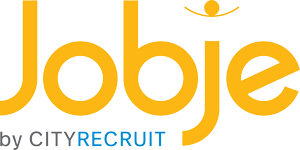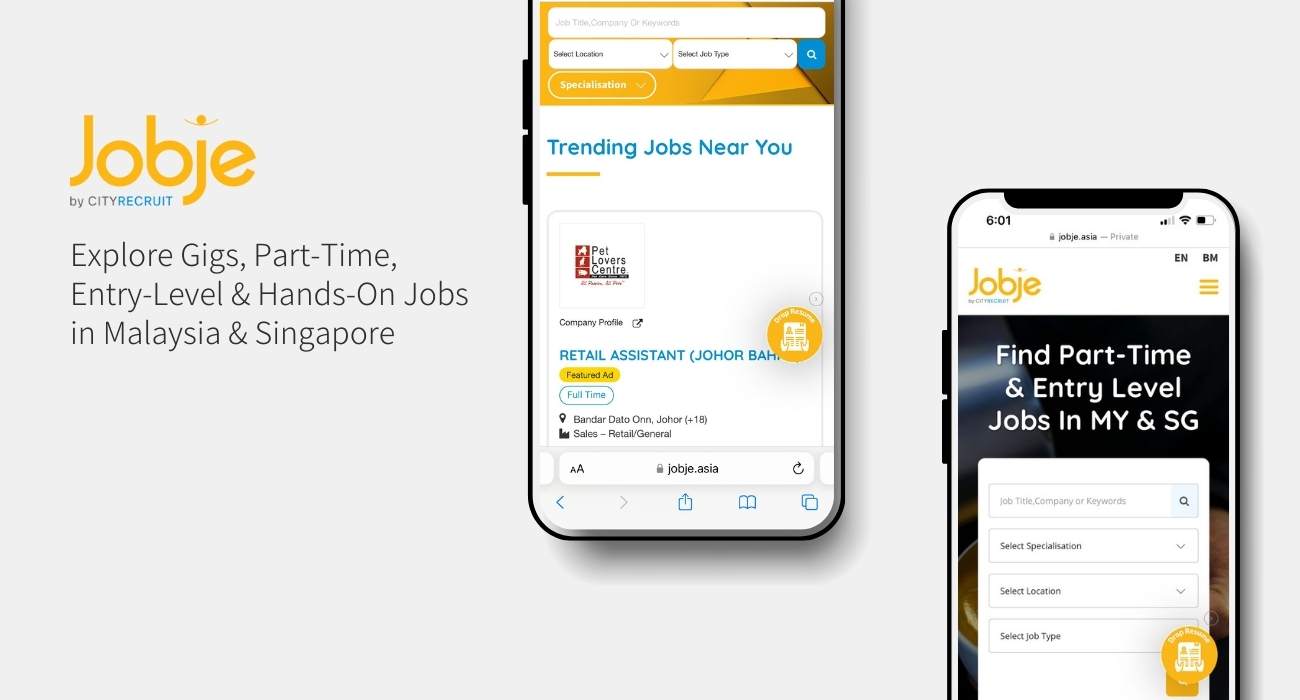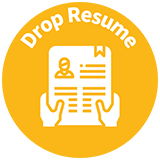As a Malaysian graduate, job seeking for the very first time may just be the most confusing period of your life.
Endless options lie ahead, and sometimes that makes it that much more difficult to confidently make a choice that feels right for you.
Well, if you have turned to the internet for some sound advice for job seekers, you have stumbled into the right place.
Whether you’re aiming for your first full-time job, hoping to get into a graduate programme, or just trying to wrap your head around how the real working world works, this guide is here to walk with you every step of the way.
Education-to-Employment Pathway in Malaysia
Malaysia’s higher education scene has expanded like crazy over the past two decades.The Graduates Statistics 2023 found over 5.74 million graduates were registered; a 4.2% increase compared to 2022.
And fresh grads these days have got a whole buffet of pathways to pick from once they’re done with uni.
1. Internships
Usually compulsory in a graduate’s final year, lasting 3 to 6 months. More than a checkbox, it can lead directly to job offers if performance is strong.
2. Graduate Trainee Programmes
Structured 12 to 24-month programmes with training, mentorship, and exposure to different departments. Some include international opportunities.
For example: Petronas, Maybank, CIMB, Nestlé, and the Big Four accounting firms.
3. Government Support
Did you know the Malaysian government has set up multiple national initiatives to help fresh grads with jobs, training, and reskilling opportunities?
For example: MyFutureJobs (PERKESO), Graduates@Work (Penjana), HRD Corp training
4. University Career Centres
You and your family have forked out a pretty penny for your tertiary education, and universities would love to have high graduate employment rates. So, don’t miss out on the on-campus support, which offers job fairs, resume clinics, and employer networking opportunities.
Knowing what your choices are is the first step in making the right call and choosing the best pathway.
Resume Writing: How to Be Your Own Hypeman (Without Sounding Syok Sendiri)
Moving on, resume writing. A skillset that is essential in landing a job.
Think of your resume as your personal hype document. It’s your chance to show what you’re all about, even if you don’t have tons of work experience (yet).
You’re not just listing what you’ve done; you’re telling a story about your potential.
| Section | What to Include | Tips | Do’s | Don’ts |
| Header (Top Part) | Name, contact number, email, LinkedIn (if got) | Keep it simple & professional. | ✅ Use a clean Gmail/Outlook email & add LinkedIn if updated. | ❌ Use funny/childish emails like coolguy69@hotmail.com. |
| Career Objective / Personal Statement | 2–3 lines about what you want + what you can bring | Write short, snappy, confident (like a TikTok bio). | ✅ Show enthusiasm: “Keen to grow in digital marketing & contribute creative ideas.” | ❌ Overshare or write “I want job because I need money.” |
| Education | School/uni name, year, major/subjects, CGPA (if solid) | Highlight achievements & relevant coursework. | ✅ Mention Dean’s list, competitions, final year projects. | ❌ Just list “SPM: 8As” with zero context. |
| Work / Internship Experience | Job title, company, dates, what you did (and achieved) | Use action verbs (“led, organised, improved”) instead of passive words. | ✅ Frame tasks as achievements: “Organised monthly reports that improved accuracy by 20%.” | ❌ Copy-paste boring job scope: “Responsible for filing documents.” |
| Skills | Hard + soft skills (Excel, Canva, teamwork, etc.) | Balance both technical & people skills. | ✅ Tailor skills to match job ad: if they want “data analysis,” put Excel/Python. | ❌ Write super basic skills like “Can use Microsoft Word.” |
| Extra (Co-curricular / Volunteer Work / Projects) | Clubs, sports, volunteering, side hustles | Show personality & impact beyond academics. | ✅ Mention leadership & outcomes: “Led 10-member team for charity run, raised RM5k.” | ❌ Dismiss with “Just member” — frame what you actually did. |
| References (Optional) | “Available upon request” or actual contacts (if agreed) | Only include if you’ve checked with them first. | ✅ Ask permission before listing lecturers/bosses. | ❌ Randomly drop people’s contact details without asking. |
There are even career platforms such as Jobje that offer help with resume writing. Exploring these platforms would help you better understand the art of resume writing, and it also allows you to browse for job listings.
For more resume writing tips, check out this How to Write a Resume That Gets Hired: Malaysia Fresh Grad Guide article to up your resume-writing game.
Upskill with Free or Low-Cost Resources
In today’s job market, any additional skill set is a big plus. Employers aren’t just looking at your degree; they’re scanning for what else you bring to the table.
So whenever you get the chance to pick up something new, especially if it doesn’t cost you much (or is totally free), go for it. Think of it as investing in yourself without burning your wallet.

There are tons of free or affordable platforms to help you stay competitive.
1. Online Learning Platforms (International):
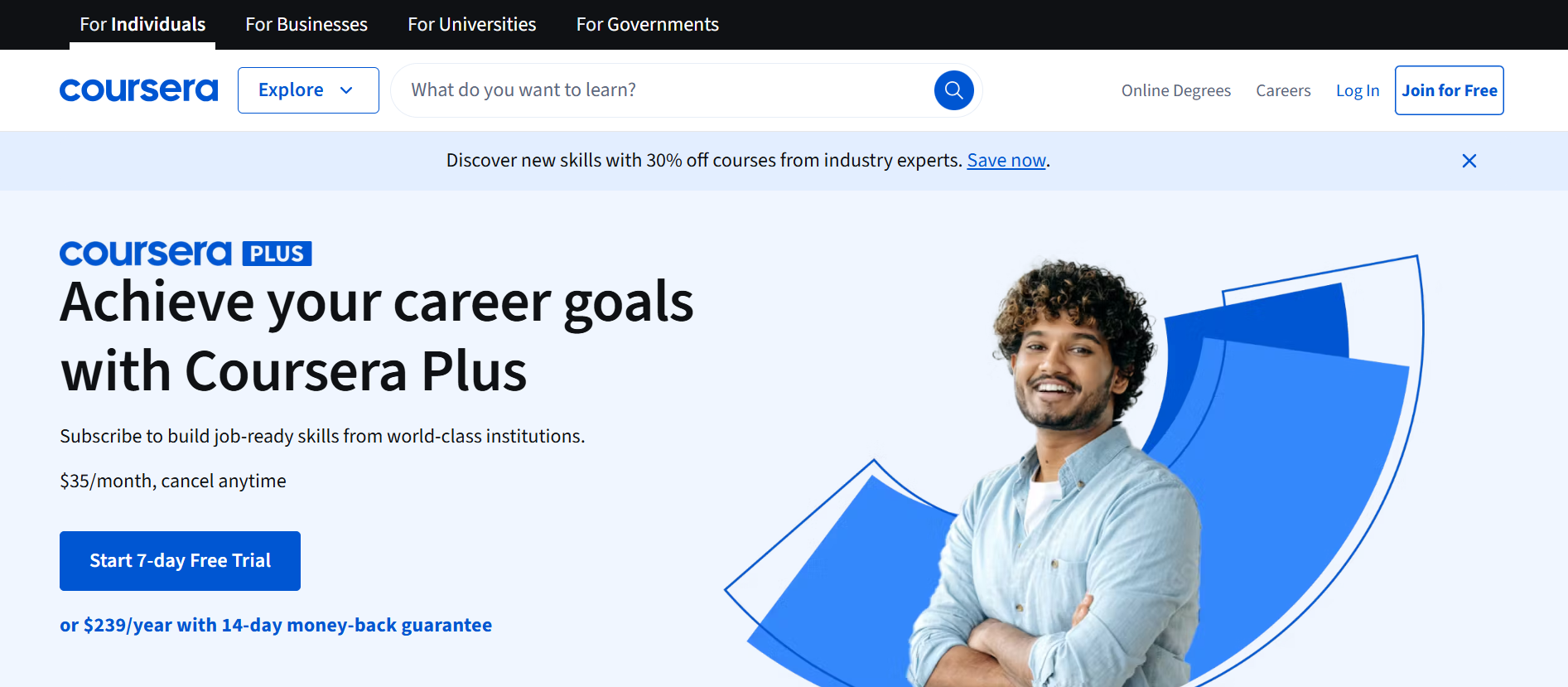
Coursera teams up with top universities and companies (like Google & IBM) to offer courses, certs, and even degrees. Many courses are free to explore, and you only pay if you want a certificate.
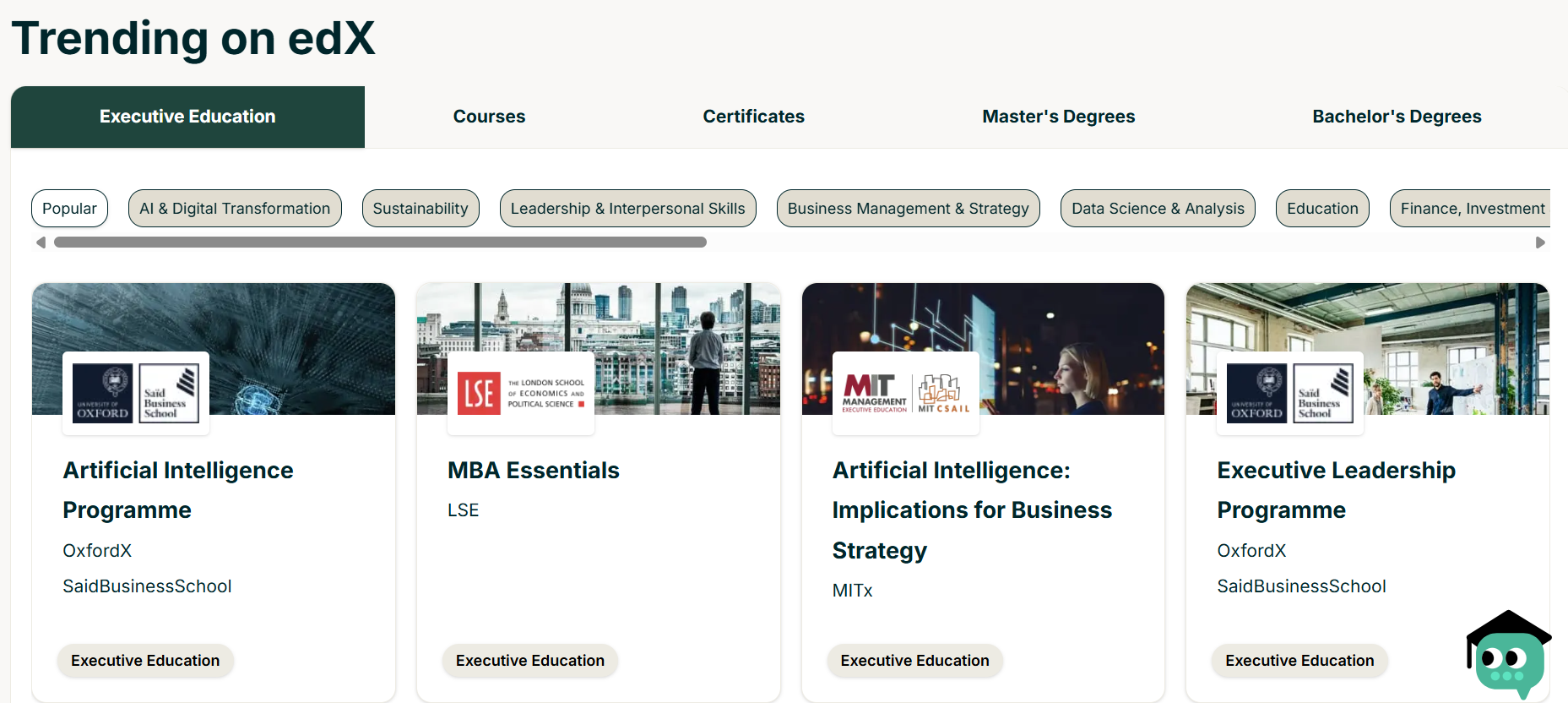
edX is another global online learning platform created by Harvard and MIT (yes, that Harvard & MIT). It offers university-level courses, professional certificates, and even full online degrees.

FutureLearn is an online platform founded by The Open University (UK) that offers short courses, micro-credentials, and even online degrees. Most courses are designed to be bite-sized, so you can learn in weeks, not months.
2. Local Platforms (Malaysia):
Great for entrepreneurship and digital marketing basics.
Offers free and subsidised training across multiple fields. Perfect for trying out new skills before committing to something bigger
3. Skills You Can Explore:
- Microsoft Excel
Still one of the most in-demand tools in almost every office job. From simple formulas to pivot tables, mastering Excel shows you can handle data and work efficiently.
- User Interface (UI) / User Experience (UX) design
Tech and digital industries are booming. Even if you’re not a designer, understanding UI/UX gives you an edge in marketing, product management, and even when working with AI-driven products. It’s about knowing how people interact with digital platforms and making the experience smooth and enjoyable.
Learn more about UI/UX design: What is the difference between UI and UX?
It’s all out there. Use your free time wisely, and turn your Netflix binges into YouTube tutorials or short online courses.
Even one or two new skills can give your resume that extra oomph.
Your Digital Presence? Keep It Clean & Professional
In Malaysia’s job market, your online presence can make or break first impressions. Employers and recruiters often look you up before even shortlisting your resume.
Here’s what you can do:
LinkedIn Profile
- Upload a professional photo (no selfies or messy backgrounds).
- Write a clear headline that shows your career interest.
- Fill in education, internships, achievements, and an “About” section.
Social Media Cleanup
- Review Instagram, Twitter/X, TikTok, and archive or remove anything unprofessional.
- You don’t have to be boring, just avoid posts that make HR raise eyebrows.
Portfolio (Creative Fields)
- Build a simple portfolio if you’re in design, marketing, or content.
- Showcase your best work/projects.
- Use free/affordable platforms: Wix, Notion, Behance.
Online Communities and Groups
- Join Telegram and Facebook groups for fresh graduates and industry-specific roles.
- Use them to find job postings, get interview tips, CV reviews, and network with recruiters.
- Some groups to consider: TechKu, The Malaysian Graduates Job Market, and Fresh Grad Jobs Malaysia.
Stay Updated
- Turn on LinkedIn job alerts and group notifications.
- Engage with communities (ask questions, comment on posts).
- Helps you catch time-sensitive vacancies and get noticed by HR and hiring managers.
Also, sign up for job sites to stay ahead of new job postings.
We highly suggest Jobje (a platform that is ideal for fresh grads)
Speaking of Digital… Let’s Talk About Your Tech Game
Digital transformation isn’t just a buzzword anymore; it’s happening across every industry. AI, automation, and remote work tools are now part of the working world, and employers want graduates who can keep up.
Whether you’re in marketing, finance, design, or even logistics, chances are your future role will involve some form of digital tool or workflow.
Employers love graduates who can adapt quickly to new systems, as it shows you’re not just book-smart but also future-ready.
Let’s look at in-demand skillsets job seekers should possess:
Data Analytics
Data is everywhere, social media metrics, competitors’ performance, sales and marketing trends, financial budgeting and more. Business leaders need individuals who can analyse these, helping them make informed decisions.
Explore these tools: SQL, Excel, Google Sheets, Power BI
AI & Automation Tools
AI is no longer sci-fi; it’s your new work buddy. From ChatGPT to workflow automation tools like Zapier, companies are using AI to save time and increase efficiency. Fresh grads who know how to use these tools can stand out by showing they’re ready to work smarter, not just harder.
Explore these tools: ChatGPT, Zapier, Notion AI, Grammarly
Coding and Tech Literacy
Basic coding literacy helps you understand how digital systems run and can give you an edge, especially in tech-heavy industries. Even non-tech roles benefit because you can “speak the language” when working with developers.
Explore these tools: Python, R, HTML/CSS, JavaScript basics
Project Management Basics
Work today is all about collaboration and deadlines. Employers love candidates who understand project workflows, from planning and tracking tasks to ensuring results get delivered. Having project management basics under your belt shows you can stay organised and lead small initiatives.
Explore these tools: Trello, Asana, Jira, Microsoft Project
Collaboration and Remote Tools
Remote and hybrid work are here to stay. Knowing how to use digital collaboration tools helps you stay connected with your team no matter where you are. It also shows you’re flexible, independent, and able to adapt to modern work setups.
Explore these tools: Slack, Microsoft Teams, Zoom, Google Workspace
Industry Trends and Digital Transformation
Every industry is going digital in its own way — finance has fintech, retail has e-commerce, and manufacturing has smart factories. Keeping up with these trends shows employers you’re forward-looking and curious about where your field is headed. It’s less about being an “expert” and more about being aware and adaptable.
Explore these sources: LinkedIn Learning, Harvard Business Review, industry blogs & podcasts
Soft Skills = Power Moves

You can have all the certs in the world, but if you’re blur in meetings or cannot work in a team, you cannot survive in the corporate world. Employers in Malaysia consistently highlight that they wish graduates would demonstrate stronger soft skills.
“Additionally, 29% of companies seek graduates who demonstrate engagement and a willingness to take on extra responsibilities, while 28.5% value the ability of graduates to complete tasks and apply soft skills.”
– Malaysian Employment Federation (MEF) president Syed Hussain Syed Husman
Some of the soft skills that employers would look out for are:
Adaptability
Things change fast in the workplace, so grads need to be flexible and able to learn quickly. Employers value people who can adjust to new environments or processes without drama.
Teamwork
Being able to collaborate effectively is a must. Companies prefer team players who can work well with others, rather than lone “keyboard warriors.”
Emotional Quotient (EQ)
This means handling feedback, stress, and conflict in a healthy way. High EQ helps you build stronger relationships at work and communicate better.
Bonus points if you’re punctual, curious, and humble. Remember — mindset beats skillset any day. Be a sponge. Learn from everyone. And always give respectful feedback.
Up Your Language Game (It’s More Important Than You Think)

Malaysia is super multilingual, and being able to switch between multiple languages is a major flex. As most Malaysians would know, the common business languages used are:
- English: Still the main business language. Learn to write emails, reports, and speak clearly during meetings.
- Bahasa Melayu (BM): A must for GLCs, government jobs, and SMEs. Even basic fluency goes a long way.
- Mandarin: Super useful in finance, logistics, property, and companies dealing with Chinese clients.
Start improving by reading local news (The Star, Berita Harian, Sin Chew), watching interviews, and doing mock emails or interviews.
How to Actually Find That First Job
Finding your first job isn’t just about spamming applications on career platforms. In Malaysia, many fresh grad roles get snapped up through networks, communities, or word of mouth.
So if you want to stand out, you gotta mix the old-school way with some smart, creative moves.
1. Tap Into Your Network
How?
Let friends, family, lecturers, and alumni know you’re job hunting. Attend industry talks or alumni events.
Why?
An intentional chat can lead to real opportunities. A study by Boterivew found that out of 15,312 job applications, only 6% are submitted as referrals; but these applications are responsible for 37% of all hires.
2. Attend Career Fairs (Virtual and Physical)
How?
Join university-hosted or industry career fairs, both onsite and online.
Why?
Even if you don’t land a job immediately, you’ll gain exposure, meet recruiters, and stay updated on in-demand roles.
3. Cold Outreach
How?
Email HR or department heads directly at companies you admire, even if no roles are posted.
Why?
Not all vacancies are advertised. Reaching out shows initiative and may get you considered for hidden opportunities.
4. Leverage Professional Associations
How?
Join groups like MIA (accounting) or MIHRM (HR). They often post jobs and training opportunities.
Why?
Members get early access to exclusive job postings, professional development, and valuable networking circles.
5. Don’t Ignore SMEs and Startups
How?
Look beyond big corporations and apply to smaller companies or startups.
Why?
They usually offer faster learning, more responsibility, and the chance to grow quickly in your career.
6. Follow Careers Pages & LinkedIn
How?
Track 10 to 15 of your dream companies’ websites and LinkedIn updates weekly.
Why?
Companies often advertise roles directly on their own platforms instead of job portals. You’ll be among the first to see them.
Related: How to Apply for Jobs
Crush Your Interviews (Without the Panic Attacks)
Job interviews can be nerve-wracking, no doubt, but they don’t have to be. With the right prep and a clear game plan, you can show up confident and ready to show them what you’re made of.
Just treat it like a conversation where you get to flex your potential.
Now, you’ll probably face a few types of interviews: phone screening, Zoom call (remember to wear pants), in-person interview (definitely remember to wear pants), or a full-day assessment (for GLCs or MNCs).
Here is our advice for job seekers on prepping for interviews:
- Online interviews: test your mic and camera before a Zoom call, prep a quiet background, and dress like you actually want the job (top to toe, not just the shirt!).
- In-person interviews: plan your route to avoid being late (you can even try out the route any day before the interview), and bring a copy of your resume.
- Full-day assessment: get a good night’s sleep, eat a proper breakfast, and be ready to show both your technical and soft skills.
How to Tackle Common Interview Questions
Moving on to some of the common questions you may get asked during an interview:
- “Tell me about yourself.”
- “What are your strengths and weaknesses?”
- “Why do you want this job?”
- “Describe a time you faced a challenge.”
When answering, use the STAR Method: Situation, Task, Action, Result.
| Step | What It Means | How to Do It | Example |
| S – Situation | Set the scene. Give context so the interviewer understands the background. | Briefly explain where and when the situation happened. | “During my final year, our group project required us to design a marketing campaign for a local SME.” |
| T – Task | Describe the challenge or responsibility you had. | Focus on what was expected from you specifically. | “I was tasked with handling social media strategy to increase the brand’s online visibility.” |
| A – Action | Explain what you actually did. | Highlight the steps you took, the tools you used, and how you contributed. | “I researched competitors, created a content calendar, and used Canva to design posts. I also analysed engagement data weekly to tweak our approach.” |
| R – Result | Show the outcome of your action. | Quantify if possible (numbers = impact). | “Our campaign boosted the SME’s Instagram followers by 35% in 2 months, and the client adopted our strategy after the project.” |
Unconventional Advice for Job Seekers: Understand Your Employee Rights and Benefits
Before you sign that first job offer, make sure you actually know what you’re agreeing to.
In Malaysia, fresh grads are protected under the Employment Act, which includes paid leave, sick days, EPF (Employees Provident Fund), and SOCSO (social security).
If the offer doesn’t cover these basics or feels sus (like no official contract or a salary that’s way too low), don’t be shy, ask questions. Also, get familiar with stuff like probation periods, notice requirements, and what happens if you quit or get let go.
Knowing your rights means you won’t get played just because you’re new to the workforce.
Consider Side Hustles or Freelancing
While waiting for the right full-time opportunity, why not try a side hustle?

Whether it’s tutoring, freelance writing, graphic design, or managing social media for businesses, and yes, even starting a small business of your own.
Side gigs not only bring in some extra pocket money but also help you pick up real-world skills you can slap onto your resume.
It’s also a great way to figure out what kind of work you enjoy before committing to a 9-to-5. Who knows, that side hustle might even become your full-time hustle one day.
You Got This — One Step at a Time
Starting your career can feel overwhelming, but remember, nobody expects you to have everything figured out from day one. What matters most is your willingness to learn, grow, and show up.
We hope these job-seeking tips prove helpful in the launch of your career. There are also some benificial platforms to help you find your dream job.
Jobje is a B2B & B2C platform that connects employers with job seekers, especially fresh graduates, part-time workers and gig workers.
It is a convenient way for fresh grads to explore job opportunities across different industries and roles.
Reach out to us directly via WhatsApp or contact us on our official website!
Your first job is just the beginning, not the destination — so take a deep breath, trust the process, and step into the working world with confidence.
You’ve got this!
Frequently Asked Questions
1. What’s the average starting salary for a fresh graduate in Malaysia?
It depends on your field, location, and qualification. On average:
- Diploma holders: RM1,800 – RM2,200/month
- Degree holders: RM2,500 – RM3,000/month
Fields like IT, Engineering, and Finance may start higher. Keep in mind that benefits (such as EPF, SOCSO, or medical) also count as part of your total compensation.
2. How do I know if a job offer is legit?
Red flags to watch out for:
- No official email or company website
- Asking for money upfront (such as “training fees” or “registration”)
- Unrealistic salary for minimal work
- Poorly written messages or WhatsApp-only communication
Do a quick check on the company’s SSM registration, social media, and employee reviews (such as Glassdoor). When in doubt, don’t proceed.
3. What can I do if I keep getting rejected or don’t hear back from employers?
Rejections are normal, especially early on. Here’s what you can do:
- Review and improve your resume (tailor it to each role)
- Practice interview skills and common questions
- Apply consistently — don’t rely on just one or two applications
- Network online (LinkedIn, alumni groups) and offline
- Consider internships, temp jobs, or side hustles to gain experience
Remember: it’s a numbers game, and persistence matters. You will get there.
